Code of Conduct in Preschools in Vietnam
Code of Conduct in Preschools in Vietnam
Based on Chapter 2 of Circular 06/2019/TT-BGDDT, the contents of the code of conduct in preschools are as follows:
(1). General Rules of Conduct
- Strictly comply with legal regulations on the rights and obligations of citizens, officials and public employees, teachers, workers, and students.
- Lead a healthy, positive lifestyle, showing care, sharing, and helping others.
- Protect and maintain the landscape of educational institutions; build a safe, friendly, green, clean, and beautiful educational environment.
- Management staff and teachers must wear respectful attire appropriate to the environment and educational activities; staff must wear attire suitable for the educational environment and the nature of their work; students must wear clean, neat attire appropriate to their age and educational activities; parents and visitors must wear attire suitable for the educational environment.
- Do not wear attire that causes offensive reactions.
- Do not smoke, use alcoholic beverages, or prohibited substances within the educational institution as per legal regulations; do not participate in social evils.
- Do not use social networks to spread, propagate, or comment on information or images that are contrary to traditional customs and practices, the direction of the Communist Party, policies, and the law of the State, or that adversely affect the educational environment.
- Do not cheat, lie, defame, cause enmity, harass, coerce, threaten, or act violently towards others.
- Do not harm the health, honor, and dignity of oneself, others, and the collective reputation.
(2). Conduct of Educational Institution Management
- Conduct with students: Standard, understandable language; loving, responsible, forgiving; respect differences, treat fairly, listen and encourage, motivate students. Do not insult, coerce, oppress, or abuse.- Conduct with teachers, staff: Standard language, respect, encourage, motivate; serious, exemplary, work alongside; protect the reputation, honor, and dignity, and promote the capabilities of teachers and staff; united, democratic, fair, transparent. Do not be overbearing, make things difficult, insult, be prejudiced, biased, opportunistic, avoid responsibility, or conceal violations.
- Conduct with students' parents: Standard language, respect, support, cooperate, share, be friendly. Do not insult, make things difficult, cause trouble, seek personal gain.
- Conduct with visitors to the educational institution: Standard language, respect, courtesy, and propriety. Do not insult, make things difficult, cause trouble.
(3). Conduct of Teachers
- Conduct with students: Standard, understandable language; praise or criticize appropriately for the subject and context; exemplary, tolerant, responsible, loving; respect differences, treat fairly, counsel, listen and encourage, motivate students; actively prevent, combat school violence, build a safe, healthy, friendly educational environment. Do not insult, harm, take advantage; do not repress, prejudge, abuse, offend; do not be indifferent, avoid or hide students' violations.
- Conduct with management: Respectful, honest, modest language; positively recommend and clearly express opinions; obey directives and assignments from leadership as per regulations. Do not insult, cause disunity; do not be indifferent, avoid or hide managers' violations.
- Conduct with colleagues and staff: Proper, honest, friendly, modest, share and support; respect differences; protect colleagues and staff's reputation, honor, and dignity. Do not insult, be indifferent, cause disunity.
- Conduct with students' parents: Proper, honest, respectful, friendly, cooperative, and sharing language. Do not insult, impose, take advantage.
(4). Conduct with visitors to the educational institution: Proper and respectful language. Do not insult, make things difficult, cause trouble.
(5). Conduct of Staff
- Conduct with students: Standard, respectful, responsible, tolerant, and helpful language. Do not make things difficult, cause trouble, insult, or act violently.
- Conduct with management, teachers: Proper, honest, respectful, cooperative language; obey assigned tasks. Do not avoid responsibility, insult, cause disunity, seek personal gain.
- Conduct with colleagues: Proper, cooperative, friendly language. Do not insult, cause disunity, avoid responsibility.
- Conduct with students' parents and visitors to the educational institution: Proper, respectful language. Do not insult, make things difficult, cause trouble.
(6). Conduct of Students in General and Continuing Education Institutions
- Conduct with management, teachers, staff: Respectful, polite, honest, share, comply with requirements as per regulations. Do not fabricate information; do not insult, honor, or dignity, or act violently.
- Conduct with other students: Proper, friendly, honest, cooperative, helpful, and respect differences. Do not use vulgar language, curse, discriminate, insult, cause disunity; do not fabricate, drag others negatively; do not spread information to defame, affect the honor, and dignity of other students.
- Conduct with parents and relatives: Respectful, polite, honest, loving.- Conduct with visitors to the educational institution: Respectful, polite.
(7). Conduct of Students' Parents
- Conduct with students: Proper, respectful, sharing, encouraging, friendly, loving language. Do not insult or act violently.
- Conduct with management, teachers, staff: Respectful, responsible, cooperative, sharing. Do not fabricate information; do not insult, honor, or dignity.
(8). Conduct of Visitors to the Educational Institution
- Conduct with students: Proper, respectful, friendly language. Do not insult or act violently.
- Conduct with management, teachers, staff: Proper, respectful. Do not fabricate information. Do not insult, honor, or dignity.
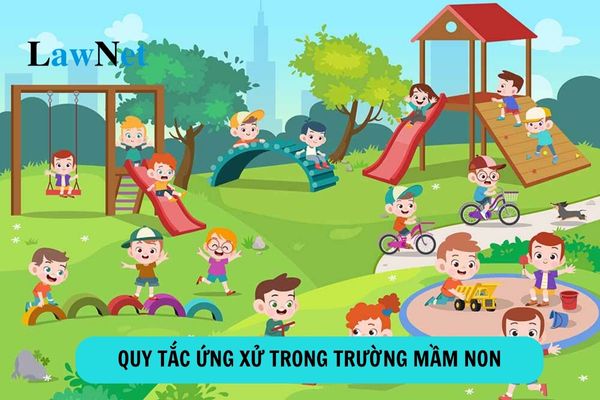
Code of Conduct in Preschools in Vietnam (Image from the Internet)
Purposes of Building the Code of Conduct in Preschools in Vietnam
Based on Article 2 of Circular 06/2019/TT-BGDDT, the purposes of building the Code of Conduct in Preschools are as follows:
- Regulate the conduct of members within the educational institution according to social ethical standards and traditional customs, suitable to the local cultural characteristics and practical conditions of the educational institution; prevent and promptly address negative behaviors and lack of educational quality within the educational institution.
- Build a school culture; ensure a safe, healthy, friendly educational environment and prevent school violence.
Principles of Building the Code of Conduct in Preschools in Vietnam
Based on Article 3 of Circular 06/2019/TT-BGDDT, the principles of building the Code of Conduct in Preschools are as follows:
- Comply with legal regulations; conform to ethical standards, traditional customs, and cultural traditions of the nation.
- Reflect core values: kindness, respect, responsibility, cooperation, honesty in each member's relationship within the educational institution towards others, the surrounding environment, and themselves.
- Ensure the orientation of moral, cultural lifestyle education, develop qualities, and capacities of students; enhance the professional ethics of management staff, teachers, and staff, and the responsibility of the educational institution's leader.
- Easy to understand, easy to implement; suitable for age, educational level, and the cultural characteristics of each region.
- The content of the Code of Conduct must be discussed democratically, objectively, publicly, and receive the consensus of the majority of members within the educational institution when building, amending, and supplementing it.
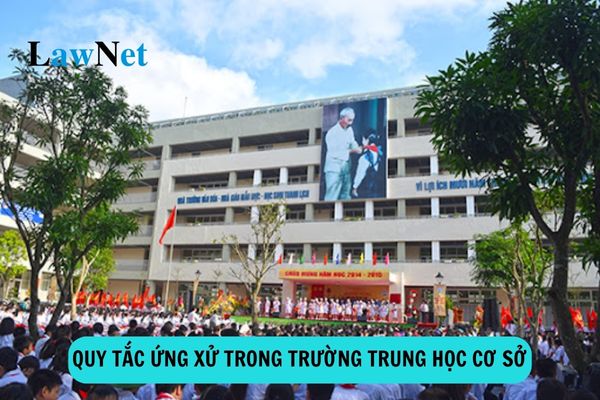

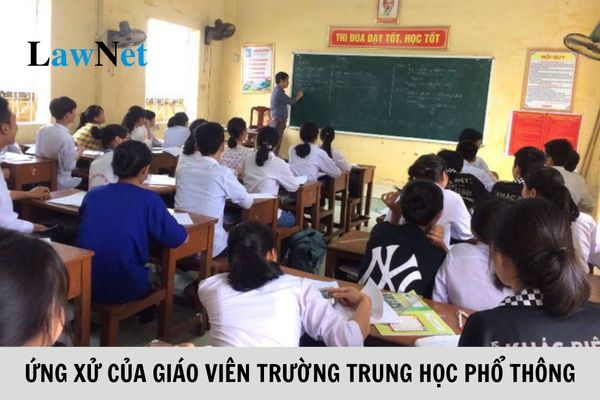
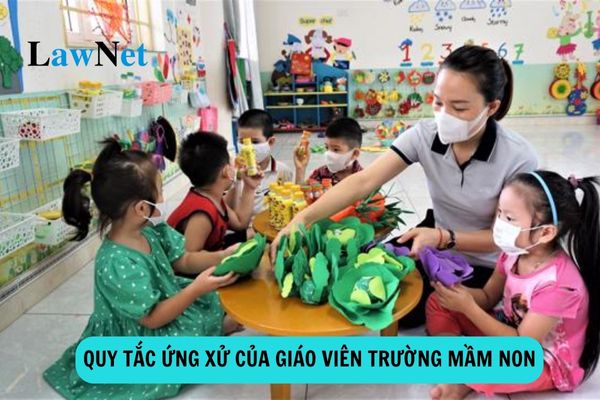
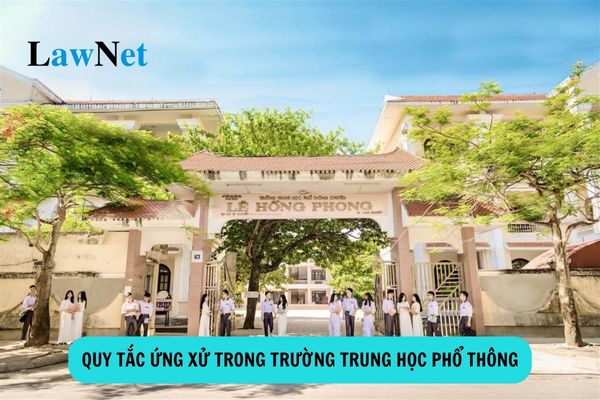
- What are the sample essays on sharing an experience with a family member for 6th-grade students in Vietnam? What elective subjects do 6th-grade students learn?
- Vietnam: What is Polymer? What is the grade at which the Chemistry curriculum covers Polymer?
- Vietnam: What are the sample social argumentative essays on artificial intelligence? What is the grade at which students initially write social argumentative essays?
- Vietnam: What are the sample discussions on students being late for school? What are the criteria for text corpus used in the 9th-grade Literature curriculum?
- Vietnam: When was the directive on national resistance given? What education level does 9th Grade fall under?
- Vietnam: What is the overview of industrial revolutions over periods in the 10th-grade History curriculum? What knowledge about industrial revolutions do 10th-grade students learn?
- What is the Plan for organizing professional training for English teachers in Ho Chi Minh City about?
- Vietnam: What are the sample outlines of a social argumentative essay on kindness for 9th-grade students? What are the kindness qualities required for 9th-grade students?
- Vietnam: What are the sample argumentative essays on respecting people's differences for 11th-grade students? What are the conditions for 11th-grade students to be eligible for grade advancement?
- Are students pursuing dance in Vietnam eligible for tuition reduction?

